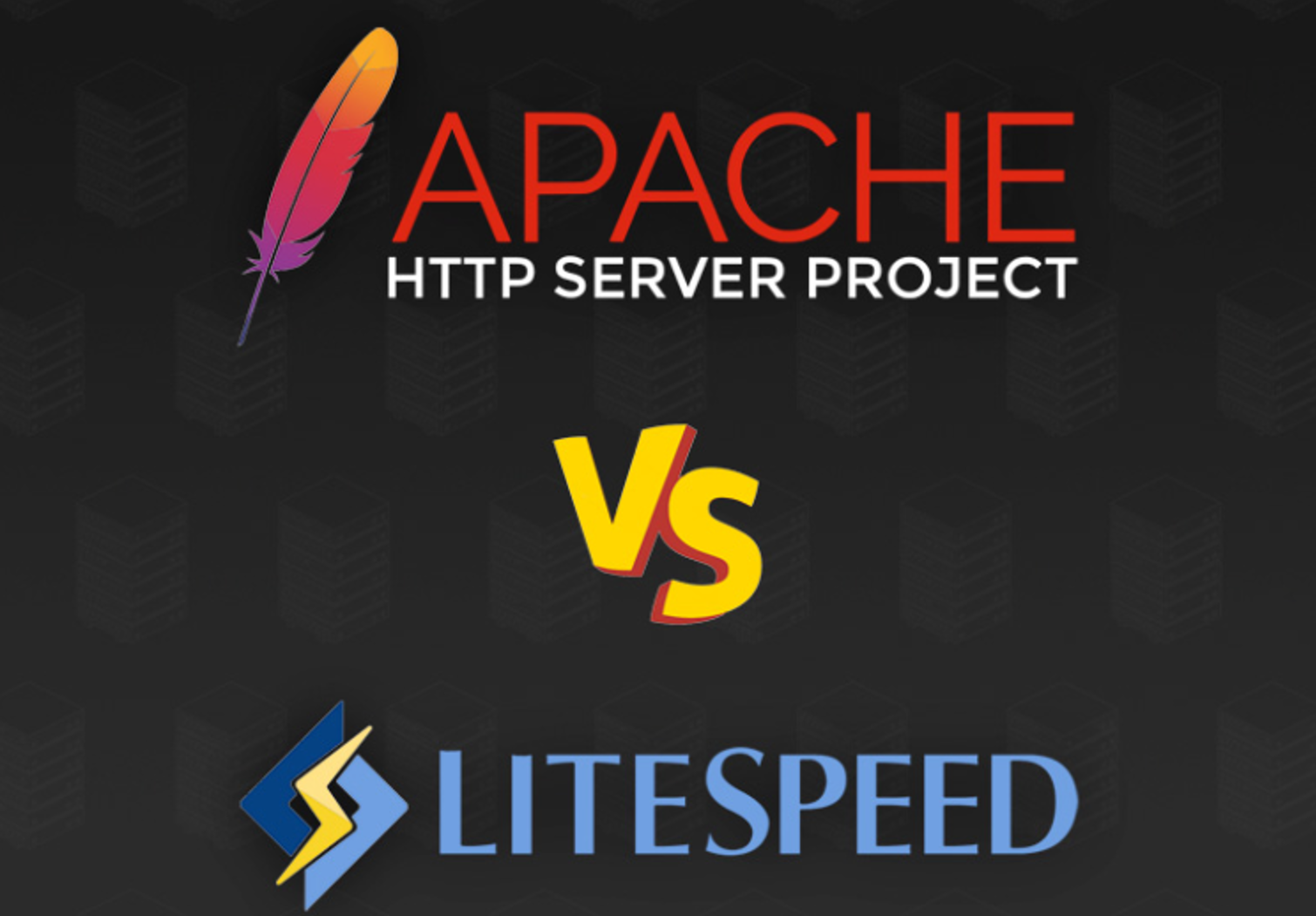
When it comes to hosting WordPress websites, choosing the right web server is crucial for optimal performance. Apache and LiteSpeed are two popular web servers, each with its own set of advantages and disadvantages. In this comprehensive comparison, we'll delve into the key features, performance metrics, and use cases of both Apache and LiteSpeed to help you make an informed decision for your WordPress hosting needs.
What is an Apache HTTP server?

The Apache HTTP Server, commonly known as Apache, is an open-source web server software developed and maintained by the Apache Software Foundation. As a foundational component of the internet infrastructure, Apache plays a critical role in delivering web content by processing and responding to client requests. Its open-source nature allows users to freely use, modify, and distribute the software, fostering a large and active community of developers.
You can more ready about Apache vs Nginx.
Advantages of Apache
- Apache is an open-source web server, which means it's free to use and has a large community of developers contributing to its development.
- Apache's modular architecture allows users to extend and customize its functionality through modules. This flexibility is advantageous for users with specific server requirements.
- Apache is widely supported and compatible with various operating systems, including Linux, Windows, and macOS. This makes it a versatile choice for different hosting environments.
- Apache is known for its robust support of .htaccess files, which allows users to configure settings on a per-directory basis, providing fine-grained control over website configuration.
Disadvantages of Apache
- Apache can be resource-intensive, especially under high traffic loads. Its process-based architecture may lead to increased memory usage, potentially affecting server performance.
- The traditional process-based concurrency model in Apache can limit its ability to handle a large number of simultaneous connections efficiently.
- While Apache is reliable, its performance may lag behind in comparison to some of the newer, more lightweight web servers.
What is a LiteSpeed webs server?

LiteSpeed Web Server (LSWS) is a high-performance, commercial web server software developed by LiteSpeed Technologies. Like Apache, LiteSpeed is designed to serve web content and handle HTTP requests, but it distinguishes itself through its focus on speed and efficiency. Notably, LiteSpeed Web Server is known for its exceptional performance, making it a popular choice for websites, particularly those built on content management systems like WordPress.
Advantages of LiteSpeed
- LiteSpeed is renowned for its exceptional performance, often outperforming Apache and other web servers. It uses an event-driven architecture, allowing it to handle a high number of concurrent connections with minimal resource usage.
- LiteSpeed comes with its caching solution, LSCache, designed to significantly boost website performance. It supports object and page caching, making it an excellent choice for WordPress websites.
- LiteSpeed is designed to be compatible with Apache configurations, making it relatively easy to switch from Apache to LiteSpeed without significant modifications to existing setups.
- LiteSpeed incorporates various security features, such as mod_security compatibility, to help protect websites from potential threats.
Disadvantages of LiteSpeed
- Unlike Apache, LiteSpeed is not open source, and a license fee is required for certain features. While LiteSpeed Web Server is free for basic use, advanced features may require a commercial license.
- While growing, the LiteSpeed community is not as extensive as Apache's. This may result in fewer resources and community-driven plugins available compared to Apache.
Comparison between Litespeed and Apache
1. Performance
LiteSpeed
LiteSpeed is renowned for its exceptional performance. Its event-driven architecture allows it to handle a large number of concurrent connections efficiently, leading to faster response times. LiteSpeed's LiteSpeed Cache (LSCache) further contributes to performance by offering powerful dynamic content caching capabilities.
Apache
While Apache is reliable, its traditional process-based concurrency model can be resource-intensive under high-traffic conditions. Apache may not match LiteSpeed's performance, especially in scenarios where rapid content delivery and handling numerous simultaneous connections are crucial.
2. Caching
LiteSpeed
LiteSpeed shines in caching dynamic content with its built-in LSCache. This caching mechanism significantly boosts website performance by storing frequently accessed dynamic content, reducing the need to regenerate content for each request.
Apache
Apache supports various caching mechanisms, but it often requires additional modules or configurations to achieve the level of caching efficiency that comes built-in with LiteSpeed.
3. Compatibility
LiteSpeed
LiteSpeed is designed to be compatible with Apache configurations. This means that, in many cases, LiteSpeed can be a drop-in replacement for Apache, making the transition relatively smooth.
Apache
Apache has a longer history and is widely supported across different operating systems. Its configurations are standard in many hosting environments, making it a versatile choice for compatibility.
4. Licensing
LiteSpeed
LiteSpeed operates on a commercial license model. While there is a free version available for basic use, some advanced features and capabilities may require a commercial license. The licensing cost is a factor to consider when choosing LiteSpeed for hosting.
Apache
Apache is open-source and free to use. Its open nature contributes to its widespread adoption and extensive community support.
5. Community Support
LiteSpeed
The LiteSpeed community is growing, but it is not as extensive as Apache's. While LiteSpeed offers support, documentation, and forums, Apache has a larger and more established community, resulting in a wealth of resources and plugins.
Apache
Apache has a robust and well-established community. The large user base contributes to a vast array of available modules, plugins, and community-driven support, making it a reliable choice for many users.
6. Use Cases
LiteSpeed
LiteSpeed is often favored for high-performance scenarios, particularly for websites with heavy traffic and dynamic content, such as WordPress sites. Its efficient event-driven architecture and caching capabilities make it well-suited for demanding hosting environments.
Apache
Apache is a versatile choice for general-purpose hosting, especially when compatibility and a wide range of configurations are essential. It is commonly used in various hosting environments, supporting both simple and complex web applications.
Conclusion
Choosing between LiteSpeed and Apache depends on your specific web hosting requirements. LiteSpeed shines in high-performance scenarios, especially for WordPress websites with heavy traffic, while Apache remains a solid choice for general-purpose hosting due to its flexibility and extensive community support.
Consider factors such as your budget, the technical expertise of your team, and the specific performance needs of your website when making a decision. Both LiteSpeed and Apache have their strengths, and the right choice ultimately depends on the unique demands of your hosting environment.
Share this post
Leave a comment
All comments are moderated. Spammy and bot submitted comments are deleted. Please submit the comments that are helpful to others, and we'll approve your comments. A comment that includes outbound link will only be approved if the content is relevant to the topic, and has some value to our readers.

Comments (0)
No comment